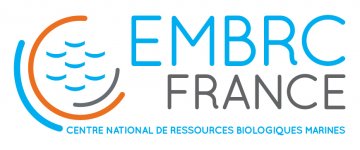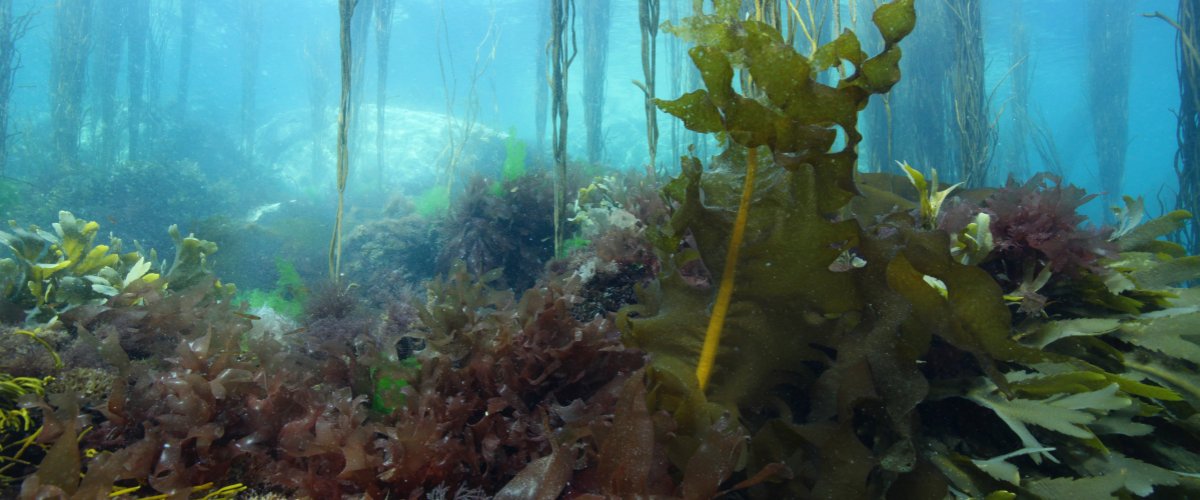International Research Network "Diversity and Biotechnology of Marine Algae"
Marine algae provide important ecosystem services. Globally, these organisms are responsible for the production of about half of the atmospheric oxygen generated each year, the majority of this production being generated by planktonic micro-algae.
Planktonic micro-algae also play key roles in other global geochemical cycles, including the carbon cycle. In coastal regions, brown and red macro-algae are the dominant species, where they support a broad range of other marine organisms. The macro-algae that grow in coastal regions also represent an economic resource that is increasingly being exploited and domesticated in the partner countries.
Both planktonic and coastal algal populations are affected by global climate change and related processes such as ocean acidification. Moreover, coastal algae are also affected by additional anthropogenic influences such as pollution and coastal development.
Despite the global importance of algae and the potential consequences of modifications to algal-based biosystems, we still have only a limited understand of how these systems function, their resilience to modifications to their environments and their potential for economic development.
The objective of this project is to create synergistic interactions between algal biologists in three partner countries (France, Chile and Brazil) to improve our understanding of algal biosystems both to estimate their susceptibility to modifications to their environments and to explore their potential for sustainable economic development.
This project brings together research laboratories and companies to foster projects that will develop sustainable economic uses of algae. In each partner country the IRN project will build on strong national initiatives.
An IRN is an international research network that is financed for 5 years. The general objectives of an IRN are to facilitate exchanges of personnel and information and the organisation of seminars, workshops and summer schools.
The overall objectives of this project are to better understand the fundamental ecological and evolutionary aspects of adaptation in marine micro- and macro-algae and to investigate the potential of these algae for biotechnological applications.
The network will study features that influence both adaptation and biotechnological potential, including both intrinsic factors such as life cycle histories and metabolic pathways and extrinsic factors such as biotic and abiotic stresses.
An important aspect of the project is also to estimate the potential impact on marine algal resources of developing biotechnological applications. The synergy that will result from combining macro- and micro-algal models is expected to provide access to basic questions such as the origin of biodiversity and the evolution of sex and multicellularity.
The number of complete algal genome sequences is rapidly increasing and large collections of cDNA sequence are being established for many additional algal species. The network aims to integrate several groups working on algal genomics, and the application of this knowledge to environmental, ecological and aquaculture/biotechnological problems will be central to the project.
Macro-algal aquaculture is expanding in Chile, the sector including both tradition macro-algal crops such as the red alga Gracilaria and Macrocystis. One of the aims of the project will be to promote the development of genomic resources, including whole genome sequences, to support these initiatives. The network will also establish a link between algal biodiversity research and biotechnology.
- Station Biologique de Roscoff, France (CNRS and UPMC)
- Observatoire Oceanique de Banyuls, Banyuls, France (CNRS and UPMC)
- Pontificia Universidad Catolica De Chile, Santiago, Chile
- Universidad Austral De Chile, Valdivia, Chile
- Universidad De Los Lagos, Osorno, Chile
- L’universidad De Concepción, Concepción, Chile
- Universidad Católica De La Santísima, Concepción (UCSC) Concepción, Chile
- Universidad De Magallanes, Punta Arenas, Chile
- Universidad Andrés Bello, Chile
- Universidad Mayor, Chile
- Universidade De Sao Paulo, São Paulo, Brazil
- Universidade Federal Do Rio De Janeiro, Rio De Janeiro, Brazil
- Universidade Do Estado Rio De Janeiro, Rio De Janeiro, Brazil








